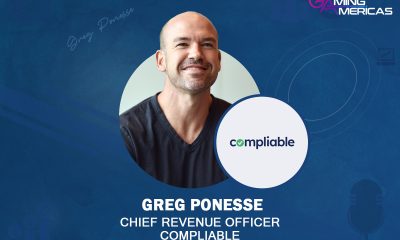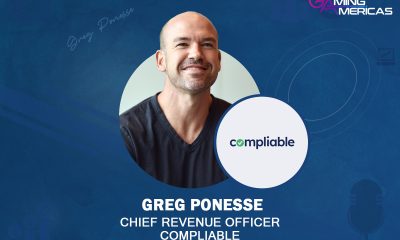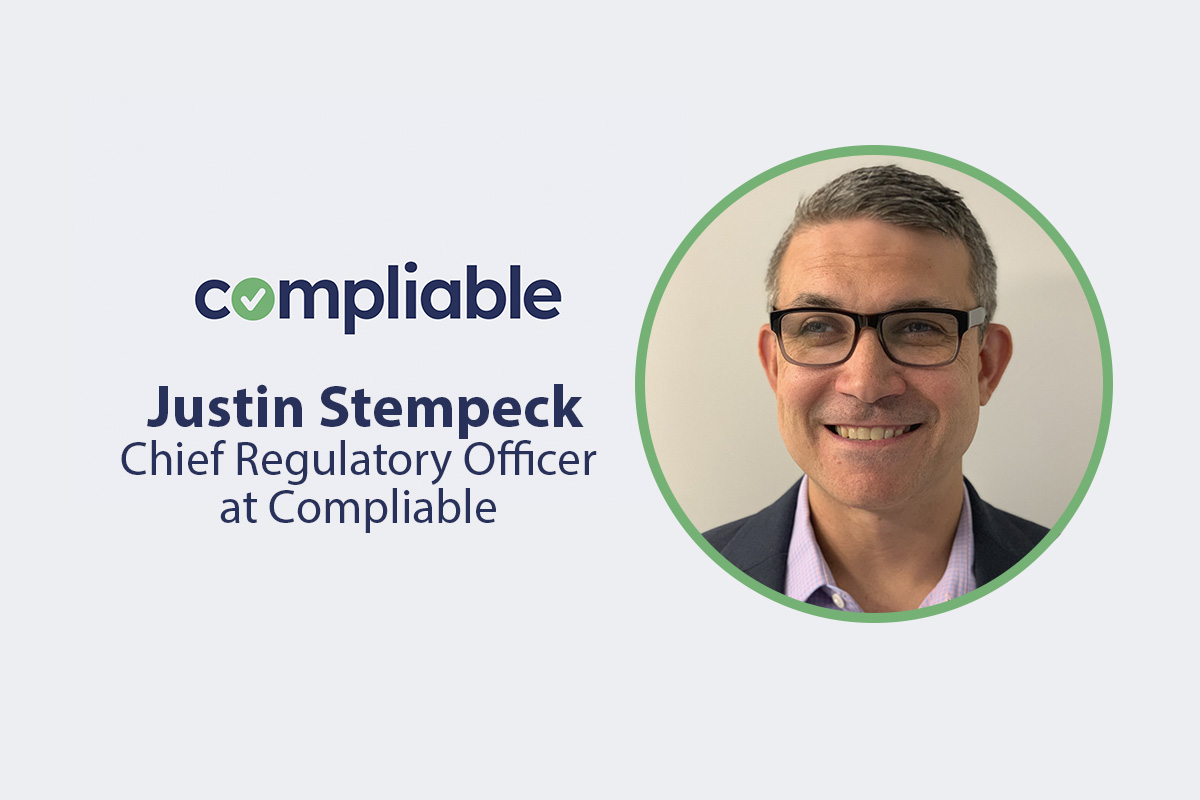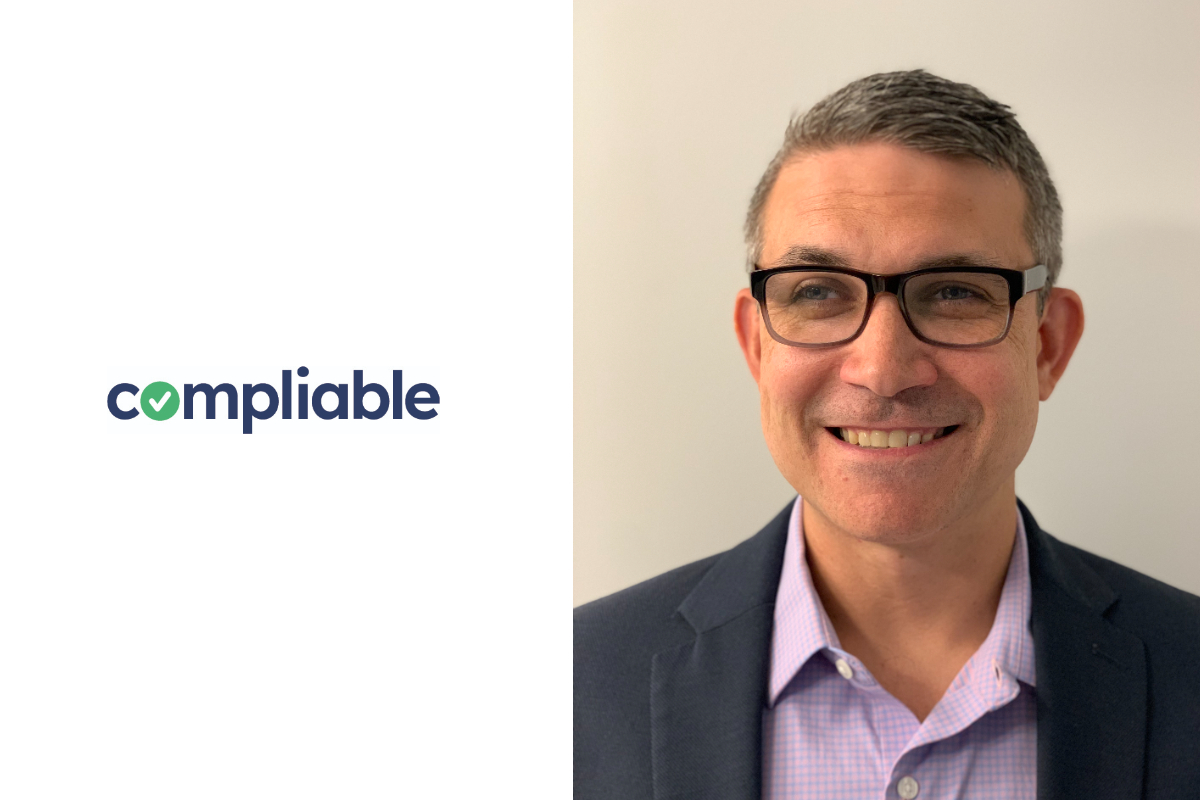Compliance Updates
The Art of Staying Compliant w/ Greg Ponesse, Chief Revenue Officer at Compliable
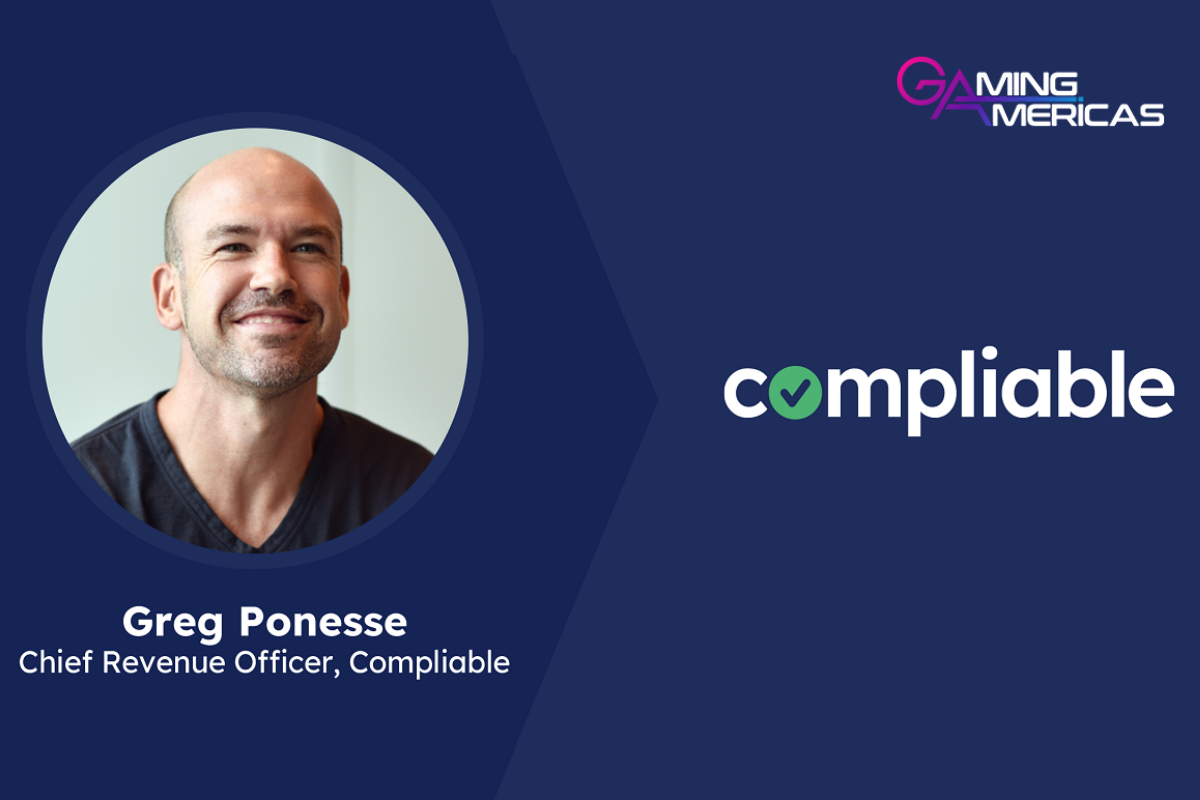
How can operators and suppliers best ensure that they stay on track of ever-changing rules and regulation once they are live in a market?
Fundamentally, it’s about keeping a finger on the pulse of the market and curating a broad network of industry sources to ensure that you are up to date on any new developments. Industry press releases, newsletters and magazines are all excellent places to begin, and getting into the habit of checking regulator websites on a monthly basis is a good next step. In general, regulators maintain open communication with the public concerning new regulations; as it’s rare to have a dedicated contact person from any given agency checking in to ensure that you’ve kept up with any updates, however, it will still fall to you to make sure that you’re keeping current with any changes. Ultimately, it is always the responsibility of the licensee to ensure that it is compliant and, if mistakes are made, there are rarely, if ever, any get-out-of-jail-free cards.
Additionally, building a network of compliance professionals that you can reach out to on short notice can be a huge help, as urgent situations can arise without warning and require you to react quickly. It’s not always possible for every company to field an in-house compliance team that can deal with every request and change, even if that would be very preferable, so having experts just a call away is always a smart choice.
Compared with entering a market, how time consuming is maintaining compliance for teams?
While entering a new market is complex, maintaining compliance is equally important, and introduces its own challenges of minutiae and attention to detail. Renewal windows need to be carefully monitored, new regulations need to be constantly observed, and required updates need to be passed on to regulators in a timely manner.
These challenges are true no matter the size of the company in question. A small company could be licensed in 16 regions, with one person managing the process for all those markets. In such a case, that one person would probably need to spend a decent portion of their work days just to ensure that compliance was being maintained across all those markets, even if the individual number of licenses was low. A large company operating in fewer locations, on the other hand, might have thousands of employees and licenses to maintain for that location, and not one of those employees or licenses could be allowed to fall through the cracks. Each license would need to be tracked, and each renewal dealt with in a timely fashion. In either case, maintenance of compliance should be expected to take up a sizable amount of time.
Are there common mistakes that occur and what impact can this have on operations?
At the risk of sounding reductive, the most common mistakes are not filling out the application correctly or failing to include the correct documentation. Attention to detail matters so much in the process and taking the time to parse what can often be very complex sets of instructions is critical.
No matter the type of licensure, there is always going to be a large amount of information and documentation required, and making sure that you have all of that information and documentation at the ready before you begin is also critical to your success in the process.
Most simply, you could equate the process to that of buying a house. Everything needs to be in order before you place your bid, or it will fall through and someone else will likely swoop in and take the house right out from under you. It’s more or less the same when a company is going through the licensing process. If everything isn’t in order, you might have to wait a long time after submitting your initial application just to be told that something is wrong or missing. Once those issues are corrected, you would have to resubmit the application, starting from the back of the queue again. This would obviously delay the issuing of a license in an industry where first-mover advantage is crucial.
How can tech solutions help teams stay compliant once they are live in a market?
There are many ways in which such solutions can assist with compliance. Our platform, for example, allows you to input all of your information and upload all your documents exactly once, and to then output that information to multiple forms at the same time. It also tracks the application status, which can be very challenging to handle on your own if you are active in numerous regions or have a lot of employees. Furthermore, it reminds you of expiration dates, so you can be well prepared and organized when the time comes for renewals. Finally, because we store your information, you are also not required to re-enter all of your information year after year, making the renewal process much more efficient; you will only have to update information if the regulator has changed their forms, otherwise, everything will slot right in where it belongs.
We put an immense amount of effort into ensuring that our forms and other documents are kept up to date with all regulatory requirements and guidelines. Thus, when you use our service to generate forms for any application or renewal, you can be assured that you are filing the correct forms, and that all the questions on that form have been filled out correctly. In short, using our platform ensures that compliance teams can focus on other important tasks while resting safe in the knowledge that their licensure forms have been completed correctly, and that their licenses and renewals are being effectively tracked.
Canada
AGCO Fines Great Canadian Casino Resort Toronto $350,000 for Serious Regulatory Violations Linked to Impromptu After-Party on Gaming Floor

The Alcohol and Gaming Commission of Ontario (AGCO) has issued monetary penalties totaling $350,000 against Great Canadian Casino Resort Toronto for multiple violations of provincial gaming standards. The penalties follow an impromptu after-party that was permitted to take place in the pre-dawn hours directly on the casino’s gaming floor.
On September 27, 2024, an electronic dance music event attended by thousands of people was hosted in the theatre adjacent to the casino at Great Canadian Casino Resort Toronto. The event was marked by widespread intoxication, disorderly behavior, and numerous criminal and medical incidents – both inside and outside the venue – including alleged assaults, drug overdoses, and acts of public indecency. Although paid duty officers were present, additional police and emergency services were required to manage the situation.
In the midst of this high-risk environment, casino management approved an unscheduled request by the performing artist to host an after-party on the active gaming floor. The artist and more than 400 guests were permitted onto the gaming floor where the artist was allowed to perform amidst operational table games and gaming machines – without any prior risk assessment or planning.
As a result, security personnel were unable to effectively control the casino floor, including witness reports that an attendee was seen climbing onto slot machines. Failure to maintain appropriate control compromises the security, safety, and integrity of the casino floor. Following the conclusion of the event, the operator failed to promptly report these incidents to the AGCO as required.
Based on the findings of its review, the AGCO’s Registrar has issued an Order of Monetary Penalty (OMP) totaling $350,000 against Great Canadian Casino Resort Toronto. These penalties address critical failures in their operations, incident reporting, employee training, and the management of disturbances.
A gaming operator served with an OMP has 15 days to appeal the Registrar’s decision to the Licence Appeal Tribunal (LAT), an adjudicative tribunal that is part of Tribunals Ontario and independent of the AGCO.
“Casino operators have a fundamental duty to control their gaming environment. Great Canadian Casino Resort Toronto’s lapses in this incident compromised the safety of patrons and the security and integrity of the gaming floor,” Dr. Karin Schnarr, Chief Executive Officer and Registrar of AGCO, said.
Compliance Updates
Esportes da Sorte holds forum on “Integrity in Sports” with Ceará and Náutico

Esportes da Sorte hosted its Match-Fixing Prevention Forum last week at Ceará and Náutico as main sponsor of both clubs. Held in partnership with Sportradar, the initiative is part of a series of in-person workshops, with upcoming sessions planned for Corinthians and Ferroviária.
The project aims to combat illegal practices and reinforce a strong commitment to integrity in sport. Activities were tailored for athletes and members of the technical staff from the men’s and women’s professional teams, as well as the under-20 squads. During the sessions, topics such as the definition of match-fixing, types of fraud, fraudsters’ modus operandi, legal risks, and reputational impacts were covered. Participants were offered practical guidance on how to respond to suspicious approaches.
“This training programme reinforces our commitment to sports integrity and responsible gaming, pillars that guide our actions. We believe education is the best form of prevention, and we want to stand alongside clubs in this joint effort for transparency and the protection of sport,” said Ana Carolina Luna Maçães, Compliance Manager at Esportes Gaming Brasil, the group behind the Esportes da Sorte brand.
“Ceará takes this topic very seriously. The club is an important player in the fight against match-fixing. We act preventively with regular meetings and have a handbook that addresses the topic with our squad. It is our duty to provide these moments of learning for athletes and technical staff. We live in a time when the integrity of sport is being questioned. In this scenario, actions like this are extremely important,” commented Lucas Drubscky, Football Executive at Ceará.
The sessions were led by Felippe Marchetti, Integrity Partnerships Manager at Sportradar, a global sports technology company and recognized authority in sports integrity. In Brazil, Sportradar partners with the Brazilian Football Confederation (CBF) and 17 state federations, monitoring more than 10,000 matches per season. The company recently signed a Technical Cooperation Agreement (TCA) with the Ministry of Finance and the Ministry of Sports.
“Raising awareness among athletes and teams is one of the most effective ways to protect competitions from manipulation. These workshops are designed to equip participants with the knowledge and tools to recognize threats and act responsibly. We are proud to support initiatives like this that strengthen the integrity of Brazilian sports,” said Felippe Marchetti.
Compliance Updates
New Bill in California Could End Online Sweepstakes Gaming

California State Assemblymember Avelino Valencia (D-Anaheim) has introduced Assembly Bill (AB) 831 to protect Californians from unregulated online gambling by prohibiting online sweepstakes games that use a “dual currency” model to mimic casino-style wagering.
“Sweepstakes” platforms sell virtual coins that are used to play casino-style games and can be redeemed for cash or prizes, essentially operating as unlicensed gambling businesses. By exploiting “No Purchase Necessary” disclaimers, they sidestep California’s regulatory framework and evade the state’s voter-approved proposition related to Tribal-State gaming. Many of these “sweepstakes” operators are based offshore and function without proper oversight, avoiding requirements like consumer protections, responsible gaming safeguards, background checks, and tax compliance.
“We cannot look the other way while these platforms exploit legal grey areas. These operations undermine the voter-approved framework that affirms Tribal governments’ sovereign right to conduct gaming in California. AB 831 strengthens that framework and ensures gaming in California remains fair and accountable,” said Assemblymember Avelino Valencia.
AB 831 fortifies existing sweepstakes laws and clarifies the illegality of internet-based sweepstakes that use the dual currency model. It reinforces the shared responsibility between the State, licensed operators, and Native Nations to keep gaming safe, transparent, and accountable. AB 831 is co-sponsored by the Yuhaaviatam of San Manuel Nation, the California Nations Indian Gaming Association (CNIGA), and the Tribal Alliance of Sovereign Indian Nations (TASIN), reflecting strong support from across Indian Country.
“For over 25 years, Tribal governments like Yuhaaviatam of San Manuel Nation, have upheld the will of California voters by operating gaming with integrity. That commitment has allowed us to reinvest in our communities, boost local economies, and support essential public services on reservations and in partnerships across the state. Illegal online gaming now threatens this foundation—compromising voter-approved law and putting Californians at risk,” said Yuhaaviatam Tribal Council of San Manuel Chairwoman Lynn Valbuena.
“We support this legislation that will close dangerous loopholes and strengthen the integrity of California’s gaming system. We remain committed to defending a proven framework that protects the sovereignty of Tribal Nations and delivers real and lasting benefits to all Californians. Together, Tribal governments and the State of California will continue to address and take decisive action against illegal internet gaming in all its forms,” said Yuhaaviatam Tribal Council of San Manuel Vice Chairman Johnny Hernandez, Jr.
“Tribal government gaming contributes nearly $25 billion to California’s economy, sustains over 112,000 jobs, and funds critical community programs. Unregulated online sweepstakes threaten this voter-approved system by imitating casino gaming without oversight, accountability, or community investment. These illegal platforms erase the benefits of regulated gaming while exposing consumers to serious risks,” said CNIGA Chairman James Siva.
AB 831 is pending a hearing in the Senate.
-

 partnerships7 days ago
partnerships7 days agoInternational Gaming Standards Association Welcomes New Payments Committee Member: Sightline Payments
-

 Latest News7 days ago
Latest News7 days agoFBM® unveils golden treasures in Mexico with Croc’s Lock™ bites
-

 Compliance Updates7 days ago
Compliance Updates7 days agoHonolulu Mayor Signs New Laws Targeting Illegal Game Rooms
-

 eSports6 days ago
eSports6 days agoBETBY EXPANDS LATAM FOOTPRINT WITH MOBADOO ESPORTS PARTNERSHIP
-

 Latest News7 days ago
Latest News7 days agoAGS Named One of U.S. News & World Report’s 2025–2026 Best Companies to Work For
-
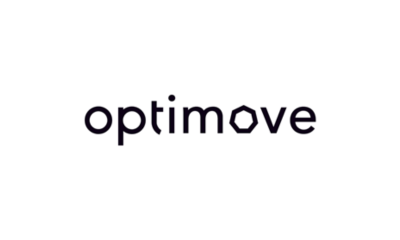
 Latest News5 days ago
Latest News5 days agoOptimove and EveryMatrix Launch Real-Time Integration to Power Smarter Marketing for iGaming Operators
-
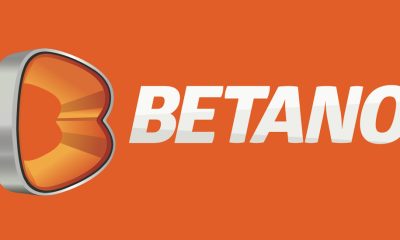
 Latest News5 days ago
Latest News5 days agoBetano, Official Sponsor of CONMEBOL Copa América Femenina 2025™
-

 Latest News5 days ago
Latest News5 days agoSpotlight 29 Casino and Tortoise Rock Casino to Launch Konami Gaming’s SYNKROS Casino Management System




